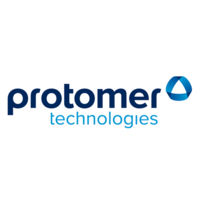Request Demo
Eli Lilly keeps its foot on dealmaking pedal, recruiting Carolyn Bertozzi's protein degradation tech for $1.6B+
25 Aug 2021
CollaboratePROTACsSmall molecular drugAcquisition
Eli Lilly is staying busy during the summer months, wheeling and dealing its way to new deals. On Wednesday, the Big Pharma sealed its latest collaboration with a biotech focused on protein degradation.
Lilly is plunking down $35 million upfront and promising another $1.6 billion-plus to South San Francisco’s Lycia Therapeutics, the companies said Wednesday morning. The deal will spur development for five new candidates and initially focus on immunology and pain, although it may expand into other disease areas, Lycia CEO Aetna Wun Trombley told
Endpoints News
.
“This collaboration can be quite broad,” she said. “The utility of the platform can be across many diseases.”
In conjunction with the deal, Stanford researcher Carolyn Bertozzi — an academic founder of Lycia — will resign as an independent director from Lilly’s board.
Since the start of July, Lilly has been quite active on the collaboration front. To kickoff that month, the company
signed on
to a four-program, $700 million-plus deal with Verge Genomics for neurological diseases like ALS. Then, to close it, Lilly
teed up
more than $2 billion to work with Kumquat Biosciences on a slate of immuno-oncology small molecule drugs.
iAnd sandwiched between those deals was the
acquisition
of fledgling biotech Protomer Technologies for more than $1 billion.
Lilly, known largely for its diabetes franchises, has slowly inched up-and-coming protein degradation field. Wednesday’s deal marks its second such partnership after Lilly enlisted Seed Therapeutics, a subsidiary of BeyondSpring, to develop its “molecular glues” to the tune of almost $800 million last November.
Lilly’s apparent expansion is good news for Lycia, which
launched
just last year with a $50 million Series A. The biotech has developed a different approach than the classic PROTAC protein degradation technique, focusing on a technology that, unlike PROTACs, can also work outside the cell. Wednesday’s deal is the first the biotech has signed.
Lycia’s technology centers around LYTACs, or lysosome-targeting chimeras, rather than PROTACs, also known as proteolysis targeting chimeras. LYTACs aim to utilize the body’s natural garbage disposal system, just like PROTACs, but do so using the endosome that traffics material to the lysosome instead of E3 ligases.
“You can think about many diseases, like Alzheimer’s, which is a buildup of misfolded protein,” Trombley said. “Many others are driven by aggregate or immune complexes that, over time, increase in size and mass and exacerbate the conditions. There’s not very many modalities for degraders that can target these deposits specifically and clear them from circulation.”
It’s there where Lycia hopes to play a pivotal role, particularly given that extracellular proteins make up about 40% of the proteome.
And the association between the two companies is not new. When Lilly opened up its innovation hub in the Bay Area, Lycia was one of the biotechs that won a spot and moved in during the second half of 2020, Trombley said.
The companies are keeping the drug targets a mystery for now, much like Lycia’s in-house candidates, Trombley added. Lycia will handle discovery work up to a “certain stage,” when Lilly will take over preclinical and clinical development.
Organizations
Indications
Targets
-Drugs
-AI Agents Built for Biopharma Breakthroughs
Accelerate discovery. Empower decisions. Transform outcomes.
Hot reports
Get started for free today!
Accelerate Strategic R&D decision making with Synapse, PatSnap’s AI-powered Connected Innovation Intelligence Platform Built for Life Sciences Professionals.
Start your data trial now!
Synapse data is also accessible to external entities via APIs or data packages. Empower better decisions with the latest in pharmaceutical intelligence.




